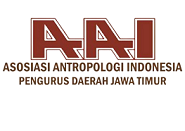Legal enforcement of individual behavior in the context of environmental policy
Downloads
Awareness of environmental damage that affects the quality of human life, such as the adverse effects of climate change, requires action and intervention by the government and society through policy and law enforcement. Normatively, this research examines the relationship of law as a representation of social control or what is called law as a tool of social engineering to community behavior. Environmental law plays a role in maintaining and controlling damage arising from human behavior and will in daily activities. The result of this study is that legal formation in increasing public awareness and concern in Indonesia towards environmental damage in mitigating and adapting to climate change is still not effective. That is evidence that the percentage of people who believe in environmental damage due to climate change in Indonesia is the lowest. This study concludes that there is a need for the most effective law enforcement to increase individual awareness of the impact of environmental damage on sustainable development.
Ahdiat, A. (2023). Luas kebakaran hutan Indonesia capai 267 ribu hektare sampai Agustus 2023. Katadata Media Network. Retrieved from https://databoks.katadata.co.id/demografi/statistik/e46ac45446601ef/luas-kebakaran-hutan-indonesia-capai-267-ribu-hektare-sampai-agustus-2023
Anton, Ediwarman, Madiasa, & Hamdan, M. (2020). Law enforcement on the issuance of construction permits violating spatial planning in Medan City. IOP Conference Series: Earth and Environmental Science, 452(1). https://doi.org/10.1088/1755-1315/452/1/012073
Ariani, D. (2019). The effectiveness of climate change litigation as a venue to uphold state climate change obligations in Indonesia. Indonesian Journal of International Law, 16(2), 210–234. https://doi.org/10.17304/ijil.vol15.3.751
Asis, A., Sofyan, A., Aswanto, & Sampurno S., S. (2015). The influence of the culture of law in law enforcement criminal acts in the field of fisheries. Journal of Humanity, 3(2), 1–8.
Bilqis, A., & Afriansyah, A. (2019). Paris agreement: Respon terhadap pendekatan prinsip common but differentiated responsibilities and respective capabilities dalam Kyoto Protocol. Jurnal Penelitian Hukum De Jure, 20(10), 517–538.
Buchholz, K. (2020). Where climate change deniers live. Retrieved from Statista website: https://www.statista.com/chart/19449/countries-with-biggest-share-of-climate-change-deniers/#:~:text=According%20to%20YouGov%2C%20Indonesia%20and,that%20humans%20weren%27t%20responsible.
Eden, S. E. (1993). Individual environmental responsibility and its role in public environmentalism. Environment and Planning A: Economy and Space, 25(12), 1743–1758. https://doi.org/10.1068/a251743
Ejelöv, E., Harring, N., Hansla, A., Jagers, S., & Nilsson, A. (2022). Push, pull, or inform - An empirical taxonomy of environmental policy support in Sweden. Journal of Public Policy, 42(3), 529–552. https://doi.org/10.1017/S0143814X21000271
Ejelöv, E., & Nilsson, A. (2020). Individual factors influencing acceptability for environmental policies: A review and research agenda. Sustainability (Switzerland), 12(6). https://doi.org/10.3390/su12062404
Evans, G. W. (2019). Projected behavioral impacts of global climate change. Annual Review of Psychology, 70, 449–474. https://doi.org/10.1146/annurev-psych-010418-103023
Forji, A. G. (2010). The correlation between law and behaviour as pillars of human society. International Journal of Punishment and Sentencing, 6(3), IJPS.
Herlina, N. (2017). Permasalahan lingkungan hidup dan penegakan hukum lingkungan di Indonesia. Unigal.Ac.Id, 3(2), 1–16.
Ibragimova, Z. N., Shchegoleva, N. A., Borisov, A. S., & Agayeva, A. V. (2018). Legal value orientations as basic category of law students’ legal culture. SHS Web of Conferences, 50, 01068. https://doi.org/10.1051/shsconf/20185001068
Ilić-Petković, A., & Ilić-Krstić, I. (2016). The role of environmental law in the implementation of sustainable development. Safety Engineering, 6(2), 99–105. https://doi.org/10.7562/se2016.6.02.07
Kuh, K. F. (2012). When government intrudes: Regulating individual behaviors that harm the environment. Duke Law Journal, 61(6).
Kulin, J., & Johansson Sevä, I. (2019). The role of government in protecting the environment: Quality of government and the translation of normative views about government responsibility into spending preferences. International Journal of Sociology, 49(2), 110–129. https://doi.org/10.1080/00207659.2019.1582964
Laksana, I. G. N. D., Jayantiari, I. G. A. M. R., Parwata, A. A. G. O., Sukerti, D. N. N., Dewi, A. A. I. A. A., & Wita, I. N. (2017). Sosiologi Hukum. Pustaka Ekspresi.
Lutfi, A. (2017). Reformasi Penegakan Hukum Perspektif Hukum Progresif. Jurnal Yuridis, 4(2), 148–163.
Macabontoc, N. A., & Vargas, D. (2021). Attitude of the community towards communication strategies in the implementation of environmental policies. SSRN Electronic Journal, (75). https://doi.org/10.2139/ssrn.3807054
Mahardika, E. R., & Bayu, M. A. (2022). Legal politics of Indonesian environmental management: Discourse between maintaining environmental sustainability and economic interests. Indonesian Journal of Environmental Law and Sustainable Development, 1(1), 1–28. https://doi.org/10.15294/ijel.v1i1.56781
Matnuh, H. (2018). Law as a tool of social engineering. Proceedings of the 1st International Conference on Social Sciences Education - “Multicultural Transformation in Education, Social Sciences and Wetland Environment” (ICSSE 2017), 147(ICSSE 2017), 118–120. Paris, France: Atlantis Press. https://doi.org/10.2991/icsse-17.2018.28
Ministry of Environment and Forestry. (2024). Burnt Area Calculation: Rekapitulasi Luas Kebakaran Hutan dan Lahan (Ha) per Provinsi di Indonesia. Retrieved from SiPongi+: Forest and Land Fires Monitoring System website: https://sipongi.menlhk.go.id/indikasi-luas-kebakaran
Nisa, A. N., & Suharno, S. (2020). Penegakan hukum terhadap permasalahan lingkungan hidup untuk mewujudkan pembangunan berkelanjutan. Jurnal Bina Mulia Hukum, 4(2), 294. https://doi.org/10.23920/jbmh.v4i2.337
Rau, H., & Edmondson, R. (2022). Responding to the environmental crisis: Culture, power and possibilities of change. European Journal of Cultural and Political Sociology, 9(3), 259–272. https://doi.org/10.1080/23254823.2022.2105598
Safira, M. E. (2017). Law is a tool of social engineering dalam penanganan tindak pidana korupsi di Indonesia ditinjau dari hukum Islam dan perundang-undangan di Indonesia. Kodifikasia, 11(1), 118. https://doi.org/10.21154/kodifikasia.v11i1.1140
Shivanna, K. R. (2022). Climate change and its impact on biodiversity and human welfare. Proceedings of the Indian National Science Academy, 88(2), 160–171. https://doi.org/10.1007/s43538-022-00073-6
United Nations Environment Programme. (2019). Environmental Rule of Law: First global report. Retrieved from https://www.unep.org/resources/assessment/environmental-rule-law-first-global-report
Wahyu, H. I. (2018). Penegakan hukum dalam perspektif law as a tool of social engineering dan bureaucratic engineering. Justice Pro, Jurnal Ilmu Hukum, 2(2), 24–33.
World Justice Project. (n.d.). WJP Rule of Law Index | Indonesia insights. Retrieved October 21, 2023, from https://worldjusticeproject.org/rule-of-law-index/country/2023/Indonesia/Constraints%20on%20Government%20Powers/
Yahya, M. Y., & Alimuddin, H. (2022). Roscou pound: Hukum sebagai alat rekayasa sosial (Keterhubungannya dengan kaidah La Yunkaru Tagayyur Al-Ahkam Bi Tagayyuri Azzaman). Indonesian Journal of Shariah and Justice, 2(2), 141–161. https://doi.org/10.46339/IJSJ.V2I2.22
Yuliyanto, E., Alatiqoh, M. M., & Alfaruq, A. H. (2022). Inter-correlation between human rights and environmental justice: A discourse of right to a good and healthy environment in Indonesia. Indonesian Journal of Environmental Law and Sustainable Development, 1(2), 213–236. https://doi.org/10.15294/ijel.v1i2.58045
Yusyanti, D. (2019). Tindak pidana pembakaran hutan dan lahan oleh korporasi untuk membuka usaha perkebunan. Jurnal Penelitian Hukum De Jure, 19(4), 455. https://doi.org/10.30641/dejure.2019.v19.455-478
Zaid, M., Musa, M., Adinda, F. A., & Cait, L. (2023). The sanctions on environmental performances: An Assessment of Indonesia and Brazilia practice. Journal of Human Rights, Culture and Legal System, 3(2), 236–264. https://doi.org/10.53955/jhcls.v3i2.70
Zukmadini, A. Y., & Rohman, F. (2023). Edukasi mitigasi dan adaptasi perubahan iklim menggunakan film dokumenter. Kumawula: Jurnal Pengabdian Kepada Masyarakat, 6(1), 191. https://doi.org/10.24198/kumawula.v6i1.39503
Copyright (c) 2024 Indonesian Journal of Social Sciences

This work is licensed under a Creative Commons Attribution-NonCommercial-ShareAlike 4.0 International License.
1. The authors agree to transfer the transfer copyright of the article to the Indonesian Journal of Social Sciences effective if and when the paper is accepted for publication. The authors can download the Copyright Transfer Agreement here.
2. The legal formal aspect of journal publication accessibility refers to Creative Commons Attribution-NonCommercial-ShareAlike 4.0 International License (CC BY-NC-SA).
3. Every publication (printed/electronic) is open access for educational purposes, research, and library. Other than the aims mentioned above, the editorial board is not responsible for copyright violation.

IJSS by Unair is licensed under a Creative Commons Attribution-NonCommercial-ShareAlike 4.0 International License.




















